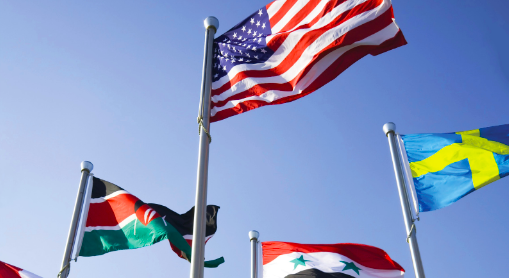Living in Two Worlds

March 26, 2023
“It was a big part of my identity…(being a 1st generation American) caused complications growing up… I was living in two worlds at the same time.” These statements are from an interview conducted with a Fairfield resident. She described the pressures of growing up, and trying to fit into American culture. A first-generation American is someone who was born in the United States, but their parents immigrated from another country. Some of the stereotypical topics that are usually associated with first-generation Americans are parental pressure and cultural differences. However, it is important to note that everyone has different experiences, and it is better to avoid generalizations about an entire group of people. This article seeks to highlight different experiences and describe what it’s like to grow up as a first-generation American.
In order to better understand the experiences of first generation Americans, we interviewed FLHS students. Most of the first generation Americans interviewed stated feeling a difference between them and their peers. Despite America’s reputation as a diverse country and a land of immigrants, people of many cultures aren’t necessarily “at home.” An FLHS student we interviewed expressed these emotions, saying, “I feel different from my peers” and “I don’t fit into social standards.” It is evident that first generation Americans may feel that their identities don’t fit into what might be viewed generally as “American”. Although we applaud FLHS for being a supportive and inclusive environment, the division that 1st generation Americans feel from what can be perceived as the “social standard” plays a large role in the way that their identities develop over time and through childhood, adolescence, and adulthood. Through our interviews, we have gathered that children of immigrants can be distinguished from their peers by the food they eat, the way they dress or talk, or their extracurricular activities. These distinctions are not bad; in fact, they should be celebrated. Unfortunately, this is not always the case. First generation immigrants are often minorities, and can be treated differently, but also feel different pressures than their peers.
It’s not only clear cultural differences that separate first generation Americans from others, but also various pressures, often familial. Concerning pressure from parents, one student stated, “My mom doesn’t have a high-income job, which motivates me to get a high income job.” Furthermore, the same student said that she felt pressure coming from her mother both indirectly and directly. She felt that at times her mother held her to a high standard, putting stress on her. Immigrant culture can place a higher emphasis on the value of education and the importance of working hard in school. Many children of immigrants grow up with these values more deeply ingrained because of the pressure to achieve a higher social or economic status than their parents.
Attitudes towards cultural differences have improved greatly in the United States over time, but it is undeniable that they still uniquely affect how first-generation Americans grow up. Everyone in FLHS deserves to be celebrated for their unique identities, and we can all strive to recognize different experiences, such as those explored in this article, which explored the perspectives of first-generation American children. Students at FLHS can improve the recognition of different cultures displayed by first generation Americans by encouraging and boosting participation in school organizations like the Asian Cultures club, the Spanish club, the Jewish club, and the Cultural Day Committee.

